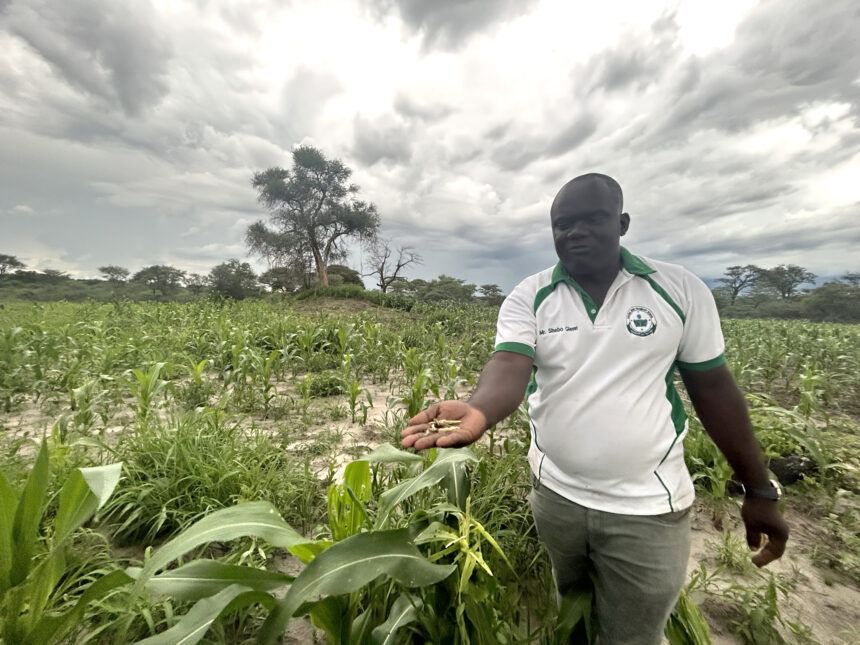KONGOLA – Mbomande Village in the Kongola constituency of the Zambezi region is facing a major agricultural crisis as the fall armyworm ravages crops on farms. Among the affected farmers is Shebo Glenn, a 40-year-old secondary school teacher-turned-commercial farmer, who invested nearly N$60 000 into his farming venture. Glenn, who transitioned to farming by using savings and part of his salary, cultivates 14 hectares in Mbomande. He planted maize on 12 hectares, and mahangu on two hectares. His projected harvest of 700 bags of maize, valued at approximately N$200 000, is now severely threatened.
“I’ve invested so much into this project, from land preparation, inputs like seeds and manure, to processes like ploughing, weeding and fencing.
But these worms are destroying my crops, and I haven’t received the necessary support from authorities”, he shared.
The outbreak has not only affected Glenn’s farm, but has spread to neighbouring areas including Sinai, Singalamwe and the Kamenga border. Despite reporting the issue to the Kongola Agricultural Development Centre (ADC), he said there has been no response in the form of visits by officials, or chemicals to eradicate the pest.
The financial breakdown of Glenn’s investment reveals that N$14 000 went into land preparation, N$10 000 on inputs and N$32 000 on farming processes. With a goal to contribute to national and regional food security while establishing a sustainable side-hustle, he remains determined, but feels deeply frustrated.
“I urge the authorities to act swiftly and consider aerial spraying of chemicals to curb this infestation before it spreads further, and cripples food security in the region,” he stressed.
Another affected Kongola farmer, Roniva Lupalwezwi, shared a sad story about the armyworm destroying her entire crop field.
“I started noticing these worms in December. It became worse in January, as they destroyed the whole crop field. They even started eating up tree leaves. I never experienced such a crisis in my whole life. It’s a disaster, and worse than drought. This means hunger for me,” she lamented.
The armyworm eats anything from maize, beans and pumpkin leaves, among other plants. The only crop spared by the worms is mahangu.
Before the destruction, Lupalwezwi had planted maize, beans and pumpkins.
The current crisis highlights the need for urgent intervention to support farmers like Glenn, who are pivotal to Namibia’s food production. Without immediate action, the region could face significant losses, impacting both livelihoods and the local economy. Contacted for comment yesterday, agricultural extension technician for Kongola and Sibbinda Linus Lutuhezi confirmed the fall armyworm outbreak in the area.
“I received reports from several farmers on the fall armyworm around Kongola. We received pesticides called Prometrin to control the worms from the regional office. We will have a demonstration to show farmers how to use this pesticide today [Thursday],” he said.
His office was waiting for the Namibia Agronomic Board to assess the damage to farmers’ crop fields by the worms.
He encouraged farmers to continue monitoring their crop fields, especially in the morning and evening when these worms are most active, and report to his office.
-anakale@nepc.com.na



